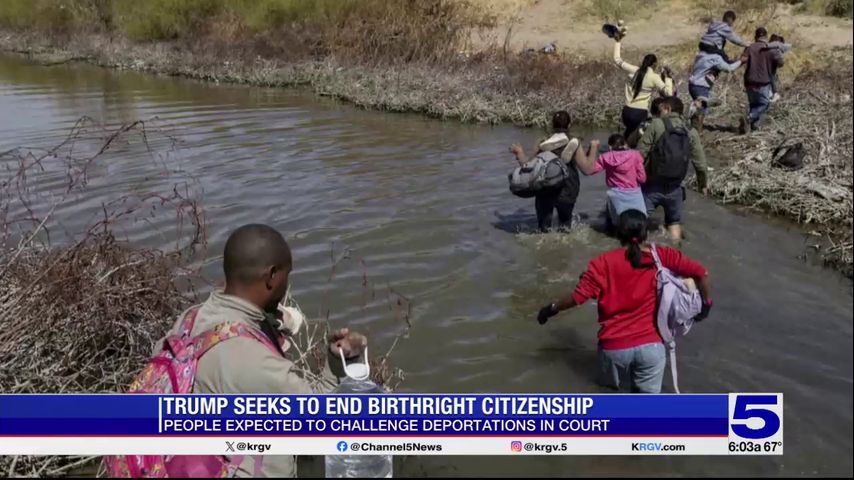Trump's goal to end birthright citizenship expected to face legal challenges
President-elect Donald Trump went into more detail on his immigration stance during an NBC News interview as he gets ready to move back into the White House.
Trump said he wants to end birthright citizenship in the United States. His team is working on an executive order to limit automatic citizenship for people born in the U.S.
The constitution grants citizenship to anyone born on U.S. soil, regardless of their parent's legal status and where they came from.
Trump's comments about a mass deportation plan were a key promise of his presidential campaign. The program will start with undocumented immigrants who have committed crimes.
RELATED COVERAGE: Trump promises to end birthright citizenship: What is it and could he do it?
He also said his administration would have no choice but to deport everyone who is illegally in the U.S. and remove American citizen family members of those deported.
Birthright citizenship has been around since the end of the Civil War. Overturning the 14th amendment would be very difficult and would take the House Senate and state legislatures.
"That would have to be taken to Congress as well as an amendment to the 14th amendment to the constitution would have to be made. So it's not something he can just say and outright happen, there has to be a process where the constitution literally would have to be amended," Immigration Attorney Susana Silva said.
According to the Library of Congress, there are more than 30 countries across the world who offer birthright citizenship.
If Trump were to order ICE to deport immigrants without permanent legal status with their children who are U.S. citizens, those deportations would be challenged in court.
If this or any other amendment is submitted, it would have to be approved by Congress and ratified by three-fourths of the states.





